Intro
Ringworm is a common fungal infection that affects the skin, causing a circular rash with a distinctive ring-shaped appearance. Despite its name, ringworm is not caused by a worm, but rather by a type of fungus that feeds on the keratin in skin cells. This infection is highly contagious and can be spread through direct contact with an infected person or animal, as well as through contaminated objects and surfaces.
The symptoms of ringworm can vary depending on the location and severity of the infection, but common signs include a red, itchy, and circular rash with a clear center. The rash can grow in size and may become painful or blistered if left untreated. Ringworm can occur on various parts of the body, including the face, arms, legs, and torso. In some cases, the infection can also affect the scalp, leading to hair loss and scaly patches.
Ringworm is a relatively common condition that can affect people of all ages, from children to adults. It is particularly prevalent in warm and humid climates, where the fungus can thrive. The infection can be treated with antifungal medications, which are available in various forms, including creams, ointments, and oral tablets. In severe cases, ringworm may require prescription-strength medication or specialized treatment.
Causes and Risk Factors of Ringworm
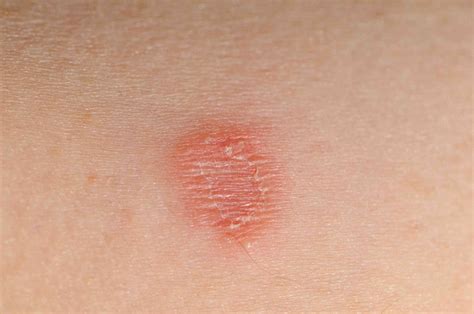
Ringworm is caused by a type of fungus that belongs to the dermatophyte family. These fungi thrive in warm and humid environments and can be found in soil, on animals, and on contaminated objects. The most common causes of ringworm include:
- Direct contact with an infected person or animal
- Contact with contaminated objects, such as towels, clothing, or bedding
- Walking barefoot on contaminated soil or surfaces
- Sharing personal care items, such as combs or hairbrushes
- Poor hygiene and sanitation
Certain individuals may be more susceptible to ringworm due to various risk factors, including:
- Weakened immune system
- Poor nutrition and hydration
- Skin conditions, such as eczema or psoriasis
- Exposure to contaminated environments
- Participation in contact sports, such as wrestling or football
Symptoms and Diagnosis of Ringworm
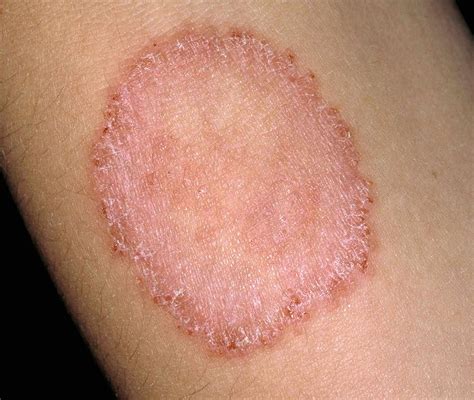
The symptoms of ringworm can vary depending on the location and severity of the infection. Common signs and symptoms include:
- A red, itchy, and circular rash with a clear center
- A rash that grows in size and may become painful or blistered
- Hair loss or scaly patches on the scalp
- Redness, swelling, and inflammation around the affected area
- Itching, burning, or stinging sensations
Diagnosing ringworm typically involves a physical examination and a review of the patient's medical history. A healthcare professional may also perform a skin scraping or biopsy to confirm the presence of the fungus. In some cases, a Wood's lamp examination may be used to detect the presence of fungal spores.
Treatment and Prevention of Ringworm
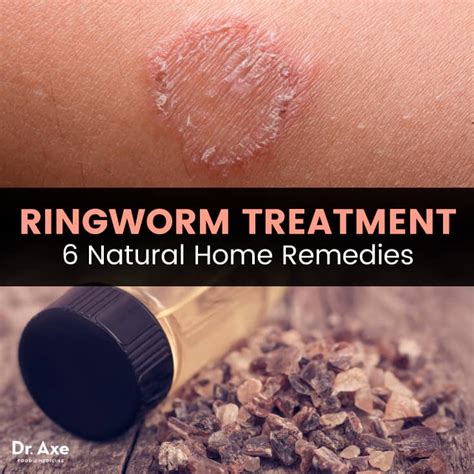
Treating ringworm typically involves the use of antifungal medications, which can be applied topically or taken orally. The type and duration of treatment will depend on the severity and location of the infection. Common treatment options include:
- Topical antifungal creams or ointments
- Oral antifungal tablets or capsules
- Prescription-strength medications for severe cases
- Specialized treatment for scalp infections, such as medicated shampoos or creams
Preventing ringworm involves practicing good hygiene and sanitation, avoiding contact with contaminated objects and surfaces, and taking steps to reduce the risk of infection. Some preventive measures include:
- Washing hands regularly with soap and water
- Avoiding sharing personal care items
- Wearing protective clothing, such as gloves or socks, when engaging in activities that involve contact with soil or animals
- Keeping skin clean and dry, especially in warm and humid environments
- Avoiding walking barefoot on contaminated soil or surfaces
Complications and Long-Term Effects of Ringworm
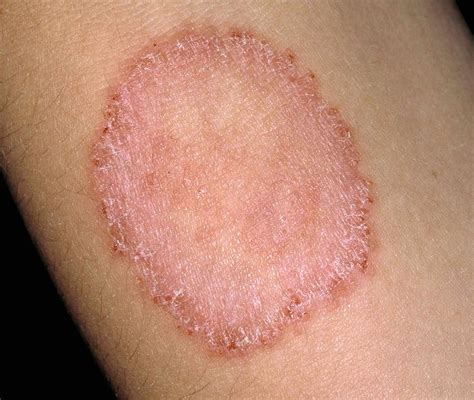
If left untreated, ringworm can lead to various complications and long-term effects, including:
- Spread of the infection to other parts of the body
- Development of secondary bacterial or fungal infections
- Scarring or permanent damage to the skin
- Hair loss or scarring on the scalp
- Emotional distress or anxiety due to the appearance of the rash
In rare cases, ringworm can also lead to more serious complications, such as:
- Cellulitis, a bacterial infection that can cause redness, swelling, and pain
- Abscesses, which are pockets of pus that can form on the skin
- Septicemia, a life-threatening condition that occurs when the infection spreads to the bloodstream
Home Remedies and Natural Treatments for Ringworm
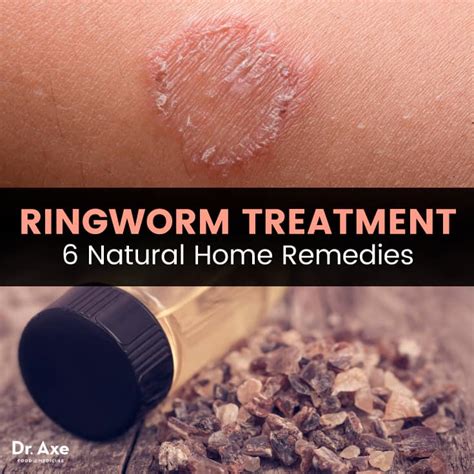
In addition to medical treatment, there are several home remedies and natural treatments that can help alleviate the symptoms of ringworm and promote healing. Some of these remedies include:
- Applying tea tree oil or coconut oil to the affected area
- Using apple cider vinegar or hydrogen peroxide as a topical antifungal agent
- Taking supplements, such as vitamin C or zinc, to boost the immune system
- Practicing good hygiene and sanitation to reduce the risk of reinfection
- Using natural antifungal powders or sprays, such as those containing sulfur or neem oil
It is essential to note that while these remedies may be helpful in alleviating symptoms, they should not be used as a replacement for medical treatment. It is crucial to consult with a healthcare professional before attempting to treat ringworm with home remedies or natural treatments.
Ringworm in Pets and Animals
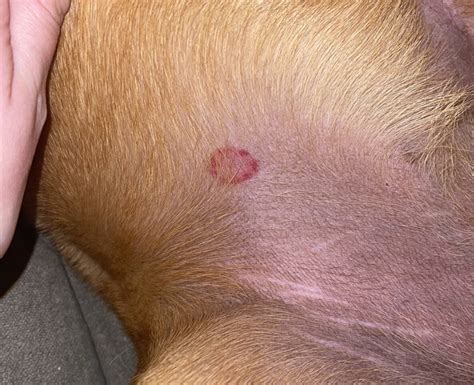
Ringworm can also affect pets and animals, including dogs, cats, and livestock. The symptoms and treatment of ringworm in animals are similar to those in humans, but may require specialized care and attention. Some common signs of ringworm in pets include:
- Red, itchy, and circular rashes on the skin
- Hair loss or scaly patches on the coat
- Redness, swelling, and inflammation around the affected area
- Itching, burning, or stinging sensations
Treating ringworm in pets typically involves the use of antifungal medications, as well as good hygiene and sanitation practices to reduce the risk of reinfection. It is essential to consult with a veterinarian before attempting to treat ringworm in pets, as they can provide guidance on the best course of treatment and help prevent the spread of the infection to other animals.
Ringworm in Children and Babies
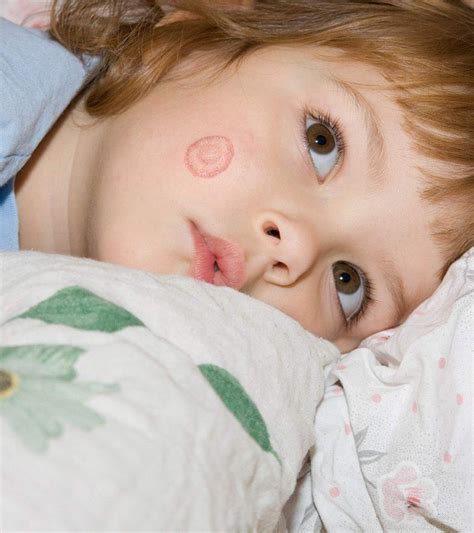
Ringworm can also affect children and babies, and may require specialized care and attention. The symptoms of ringworm in children are similar to those in adults, but may be more severe or widespread. Some common signs of ringworm in children include:
- Red, itchy, and circular rashes on the skin
- Hair loss or scaly patches on the scalp
- Redness, swelling, and inflammation around the affected area
- Itching, burning, or stinging sensations
Treating ringworm in children typically involves the use of antifungal medications, as well as good hygiene and sanitation practices to reduce the risk of reinfection. It is essential to consult with a pediatrician before attempting to treat ringworm in children, as they can provide guidance on the best course of treatment and help prevent the spread of the infection to other family members.
What is the most common cause of ringworm?
+Direct contact with an infected person or animal is the most common cause of ringworm.
How can I prevent ringworm from spreading to other parts of my body?
+Practicing good hygiene and sanitation, such as washing your hands regularly and avoiding sharing personal care items, can help prevent the spread of ringworm.
Can ringworm be treated with home remedies?
+While some home remedies may be helpful in alleviating symptoms, they should not be used as a replacement for medical treatment. It is essential to consult with a healthcare professional before attempting to treat ringworm with home remedies.
In conclusion, ringworm is a common fungal infection that can affect the skin, causing a circular rash with a distinctive ring-shaped appearance. Understanding the causes, symptoms, and treatment options for ringworm is essential for effective management and prevention. By practicing good hygiene and sanitation, avoiding contact with contaminated objects and surfaces, and seeking medical attention if symptoms persist, individuals can reduce their risk of developing ringworm and promote healthy, infection-free skin. We invite you to share your experiences and questions about ringworm in the comments below, and to share this article with others who may be interested in learning more about this common condition.
